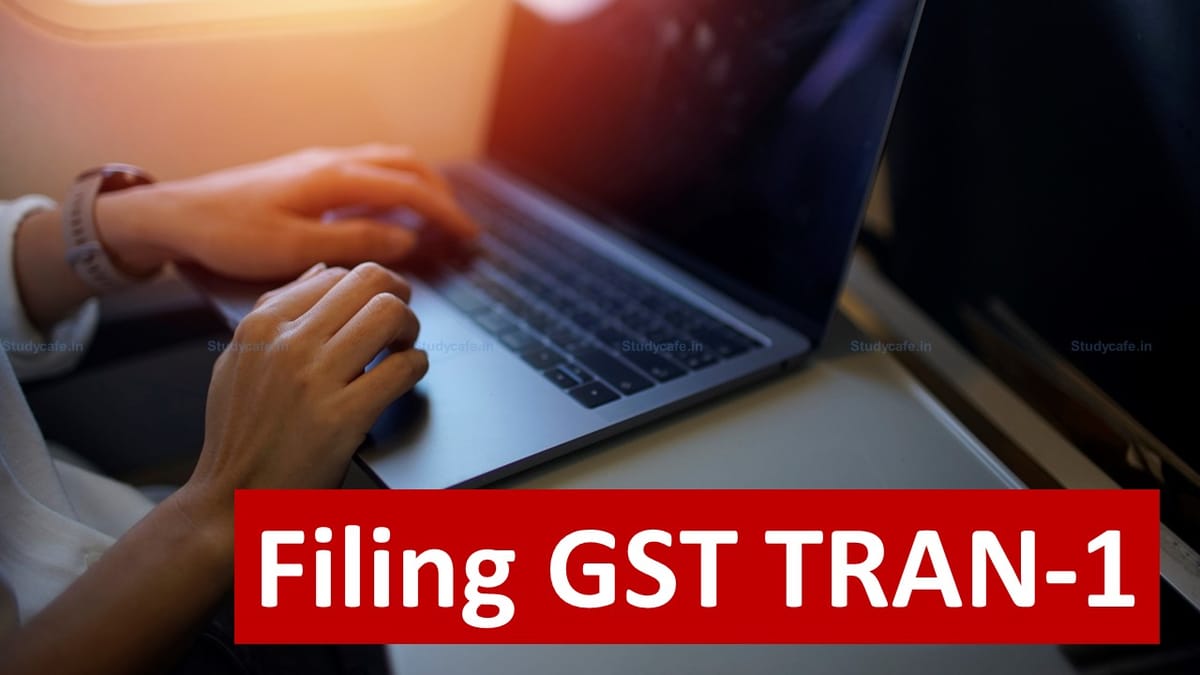CA Pratibha Goyal | May 9, 2022 |

HC Directs GST Department to allow revision of TRAN 1 on Web Portal
In a recent Order, the High Court has directed the GST Department to facilitate revising of form GST TRAN-1 submitted by the Taxpayer on 01-09-2017 and to file form GST TRAN-2 by making necessary arrangements on the web portal. If in case the same is not possible, the court has further asked the department to permit the manual filing of such returns.
In this case, the petitioner alleges to have Rs. 19,28,654/- as an unutilized input tax credit (ITC) under the earlier tax regime. After the introduction of GST, the petitioner submitted a declaration in form GST TRAN-1 on 01.09.2017 declaring the details of the credit to be claimed while filing form GST TRAN-2. However, while attempting to complete the form TRAN-2, the petitioner received an error message stating that it had not declared anything in Part 7B of Table 7(a) of Form GST TRAN-1 and hence petitioner cannot fill details in Table 4 of TRAN-2.
Pursuant to the receipt of the aforesaid error message and on verification, the petitioner realized that, while filling up form GST TRAN-1, an inadvertent mistake was made by filling Table 7(d) of Part 7B of form GST TRAN-1 instead of Table 7(a) of Part 7B. The said mistake resulted in the petitioner unable to fill form GST TRAN-2 and transition the input tax credit to the electronic ledger.
According to the petitioner, the mix up of fields in the GST form occurred inadvertently, due to lack of awareness under a nascent legislation and the same ought not to be treated as fatal to the entitlement of the petitioner to obtain credit. Immediately thereafter, petitioner represented to the GST Council seeking redressal of its grievance and requesting permission to revise TRAN-1 in order to file TRAN-2.
Petitioner received a reply from the 7th respondent pointing out that a one-time facility to complete the TRAN-1 procedure was extended to those assessees who could not file TRAN-1 due to glitches as prescribed in Circular No. 39/13/2018-GST dated 03/04/2018. It was also mentioned that the period for revising the declaration in form GST TRAN-1 was extended till 27/12/2017 and that no orders for extension of time have been permitted.
Subsequently, petitioner approached this Court by filing W.P.(C) No.20287 of 2018 and obtained an order permitting the petitioner to prefer a representation pointing out the grievance before the Nodal Officer appointed and the said officer was directed to take a decision on the representation, if filed.
Consequent to the said direction, petitioner preferred representation to the Nodal Officer. However, by communication dated 20.03.2019, the representation was rejected. Aggrieved by the rejection of petitioner’s representation for correction of form GST TRAN-1, this writ petition is preferred. Amongst the reliefs claimed, petitioner has also sought for a direction to facilitate the corrections in form GST TRAN-1 and to allow credit of the unutilized input tax into the electronic credit ledger of the petitioner.
As a Relief, the Court has allowed petition of the Taxpayer.
The Court also said, “As far as the GST regime is concerned, the period between 2017 and 2020 ought to be regarded as the nascent period of legislation. Admittedly several glitches had occurred even from the part of the Department. The said period was regarded by the courts as a ‘trial and error phase’ as far as implementation of the statute was concerned. The taxpayers were also in a state of confusion, during those periods. Unfamiliarity with the new regime caused formidable and unprecedented difficulties. As observed by the High Court of Delhi in Brand Equity Treaties Limited and Others v. Union of India and Others (MANU/DE/1009/2020), these problems could be attributed either to the failure of the system maintained by the Department or even on the inexperience of the assessees in the ways and means provided by the new regime. The court went on to observe that the Department, which ought to have come to the rescue of the taxpayers, especially during the nascent stage of its legislation, has failed in respect of the petitioner to provide succor for the difficulty faced by it.”
The Court Added that “The statutory limitation prescribed for correcting errors that occurred during the initial stages of transition ought not to be used as an iron handle to deny the legitimate claims of taxpayers, especially for claims relating to transitional input tax credit. When it is apparent from the circumstances, that, the mistake was a bonafide error and arose on account of an error in perception and comprehension of minute details of the new formats to be submitted, denying the relief of correcting the error can only be termed as arbitrary and unreasonable. In such instances, this Court cannot shy away from its constitutional obligation of enforcing equal protection of all laws within the territory of India, contemplated under Article 14 of the Constitution of India.”
In case of any Doubt regarding Membership you can mail us at [email protected]
Join Studycafe's WhatsApp Group or Telegram Channel for Latest Updates on Government Job, Sarkari Naukri, Private Jobs, Income Tax, GST, Companies Act, Judgements and CA, CS, ICWA, and MUCH MORE!"